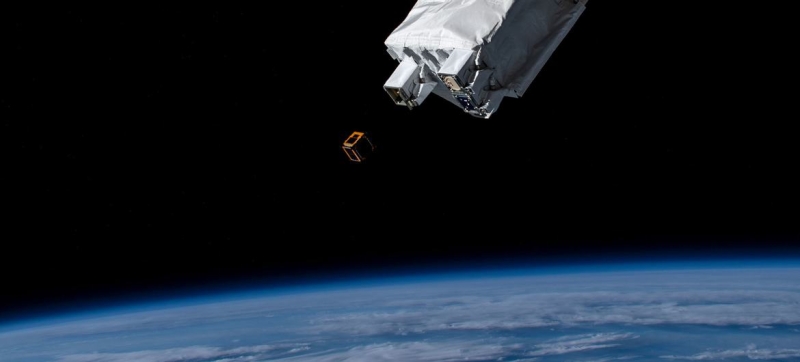- India Sees 9% Drop in Foreign Tourists as Bangladesh Visits Plunge |
- Dhaka Urges Restraint in Pakistan-Afghan War |
- Guterres Urges Action on Safe Migration Pact |
- OpenAI Raises $110B in Amazon-Led Funding |
- Puppet show enchants Children as Boi Mela comes alive on day 2 |
Global South Joins New Space Race With UN-led Support

The SS-1 satellite being deployed from the International Space Station. © JAXA/NASA
Once the domain of a select few technologically advanced nations, outer space is now increasingly within reach for countries from the Global South. With the falling costs of space missions and the growing availability of technology, nations such as Zimbabwe, Honduras, and Malta are stepping into the cosmos with serious intent.
While long-established space powers—especially the United States—still dominate global headlines, more than a dozen smaller and emerging states are signalling their interest in harnessing space for national development. Many are also applying for membership in the UN body responsible for shaping international space policy to ensure peaceful cooperation and avoid a lawless “Wild West” scenario that could lead to future conflict.
So why are countries like Côte d’Ivoire, The Gambia, and the Maldives setting their sights on space? The answer lies in the growing awareness of how space-based technologies can support climate resilience, disaster management, and sustainable development. In Small Island Developing States (SIDS), for example, satellite data is used to monitor rising sea levels and improve early warning systems for hurricanes and floods.
In Ghana and Tonga, the UN Office for Outer Space Affairs (UNOOSA) recently partnered with governments to develop “digital twins” of their capital cities. These AI-powered, satellite-fed virtual models simulate natural disasters—such as flooding—allowing authorities to identify vulnerable infrastructure, improve response planning, and ultimately save lives.
However, entering the space sector is not without challenges. Many emerging space actors face steep financial and technical hurdles, as well as limited legal and regulatory structures. To bridge these gaps, UNOOSA offers technical advice, supports national space legislation development, and helps countries meet international obligations under key UN treaties, including the Outer Space Treaty and the Registration Convention.
UNOOSA’s Access to Space for All programme enables non-spacefaring nations to launch payloads, conduct scientific experiments, and access mission data. Countries like Kenya, Mauritius, Guatemala, and Moldova have successfully launched their first satellites through the JAXA/UNOOSA KiboCUBE initiative, which helps deploy small cube satellites from the International Space Station.
The agency’s Space Law for New Space Actors project supports emerging nations in crafting legal and policy frameworks to govern outer space activities. Meanwhile, the Space4Women initiative offers a Gender Mainstreaming Toolkit to help organisations promote gender equity in the sector, empower women and girls, and track measurable progress.
Another flagship programme, UN-SPIDER, provides capacity-building support in the use of space technology for disaster risk reduction and emergency response, particularly in vulnerable and high-risk regions.
Through these initiatives, UNOOSA is working to ensure that no nation—regardless of size or income level—is left behind in humanity’s next great leap into the stars.

